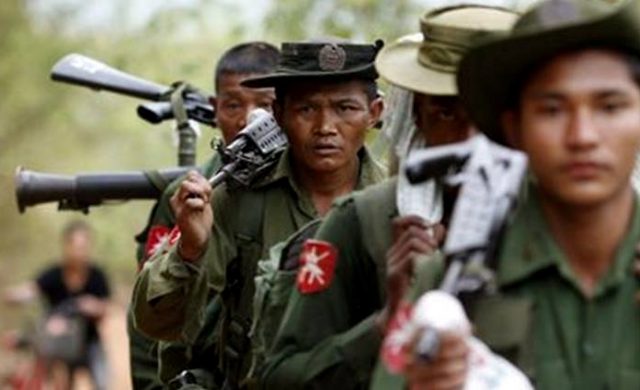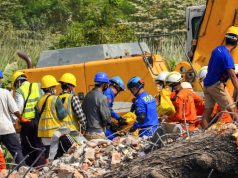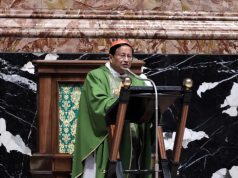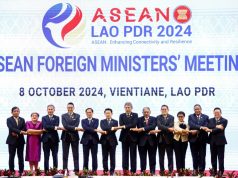
YANGON – U.S. Secretary of State Rex Tillerson will stress the need to halt violence and stabilize Rakhine State when he meets the head of Myanmar’s military on Wednesday in a bid to stem the Rohingya refugee crisis, a senior State Department official said.
More than 600,000 Rohingya Muslims have fled to Bangladesh since late August, driven out by a counter-insurgency clearance operation in Rakhine State. A top U.N. official has called the Myanmar military’s operation a textbook case of “ethnic cleansing”.
Attending an East Asia summit in Manila on Tuesday, Tillerson met Myanmar leader Aung San Suu Kyi, whose less than two-year-old civilian administration shares power with the military and has no control over its generals.
He will meet Suu Kyi again in the Myanmar capital of Naypyitaw on Wednesday, and hold separate talks with the head of the armed forces, Senior General Min Aung Hlaing.
Restoring peace
Asked what approach Tillerson would take with Myanmar’s army chief, the State Department official told journalists in a briefing by teleconference, that the focus would be on restoring peace in Rakhine.
“We are focusing on trying to stabilize areas in northern Rakhine so that people can return there, stopping the violence, making sure that military would protect all populations in that area equally and that they conduct a credible investigation that leads to accountability,” said the official, who was with Tillerson in Manila, but declined to be identified.
Consequences
The official said the consequences for the country, also known as Burma, if it failed to respond to the crisis with accountability could be part of the conversation with the military leader.
”Burma made a lot of progress and we would not want to see that progress reversed,” the official added.
U.S. senators in Washington are pressing for economic sanctions and travel restrictions targeting the military and its business interests.
“The secretary will reiterate support for Burma’s democratic transition and urge the Burmese government to protect local population and allow unhindered humanitarian and media access, (and) support for a credible investigation of abuses,” the official said.
Accusations of organized mass rape and other crimes against humanity were leveled at the Myanmar military on Sunday by another senior U.N. official, who had toured camps in Bangladesh where Rohingya refugees have taken shelter.
‘Whitewash’
Pramila Patten, the U.N. special representative of the secretary-general on sexual violence in conflict, said she would raise accusations against the Myanmar military with the International Criminal Court in the Hague.
The military, known as the Tatmadaw, has consistently protested its innocence, and on Monday it posted the findings of an internal investigation on the Facebook page of Min Aung Hlaing.
It said it had found no instances where its soldiers had shot and killed Rohingya villagers, raped women or tortured prisoners. It denied that security forces had torched Rohingya villages or used “excessive force”.
The military said that, while 376 “terrorists” were killed, there were no deaths of innocent people.
Human rights groups have poured scorn on the military’s investigation, branding it a “whitewash” and calling for U.N. and independent investigators to be allowed into the country.









